Case Studies.
Add Case Study
Our Case Study database tracks 18,926 case studies in the global enterprise technology ecosystem.
Filters allow you to explore case studies quickly and efficiently.
Download Excel
Filters
-
(5,794)
- (2,602)
- (1,765)
- (764)
- View all
-
(5,073)
- (2,519)
- (1,260)
- (761)
- View all
-
(4,407)
- (1,774)
- (1,292)
- (480)
- View all
-
(4,157)
- (2,048)
- (1,256)
- (926)
- View all
-
(2,488)
- (1,262)
- (472)
- (342)
- View all
- View all 15 Technologies
- (1,732)
- (1,626)
- (1,605)
- (1,460)
- (1,423)
- View all 42 Industries
- (5,781)
- (4,113)
- (3,091)
- (2,780)
- (2,671)
- View all 13 Functional Areas
- (2,568)
- (2,482)
- (1,866)
- (1,561)
- (1,537)
- View all 127 Use Cases
- (10,333)
- (3,499)
- (3,391)
- (2,981)
- (2,593)
- View all 9 Services
- (503)
- (432)
- (382)
- (301)
- (246)
- View all 737 Suppliers
Selected Filters
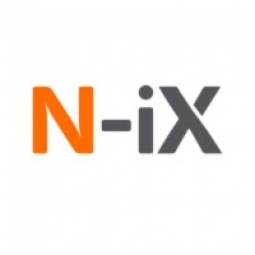
|
Cost and Operational Optimization for a Global IoT Service Provider
The client, a global enterprise and one of the world's largest companies delivering IoT devices and services, faced a significant challenge. They needed to modernize and expand the functionality of their legacy IoT device and asset-tracking SaaS platform. The existing system was an on-premise architecture that was inefficient and incurred significant costs. The client aimed to improve the platform's efficiency and user experience, optimize costs, and accelerate time-to-market. The platform, a hub for IoT devices supporting industrial protocols, manages connected devices and transmits their data to third-party services like SAP and Salesforce. The need for modernization and migration to the cloud was crucial to meet the client's objectives.
|
|

|
Streamlining Operations and Optimizing Costs in Energy with IoT
The client, one of the UK’s largest energy suppliers, was facing challenges in improving their business efficiency and streamlining cooperation with their affiliated company. They were using two separate back-office platforms to manage boiler insurance operations: one for their employees and another for their affiliated company. This led to inefficiencies and difficulties in managing operations. The client needed to build a unified platform that would include all necessary features and could be used by both companies. This would not only improve the efficiency of the cooperation with their affiliated company but also streamline operations for all employees. Additionally, the client aimed to enhance the accuracy, accessibility, and security of their data by combining and standardizing it in a single place.
|
|

|
Effective Price Management in Retail for Enhanced Customer Experience
The client, a major distributor of office supplies and furniture operating in nearly half of all European countries, was facing challenges in managing product prices as their business expanded into new markets. Their existing monolithic solution was no longer efficient enough to meet the speed, accuracy, and efficiency requirements necessary for the company’s growth. The existing pricing management involved the use of several separate systems and Excel spreadsheets, as well as a significant amount of manual work. This required increasing time and effort from the client’s employees as the product inventory was expanding and the prices were changing frequently. The company needed to streamline the price management process and gain the ability to instantly handle pricing updates.
|
|

|
Leveraging IoT Software Solutions for Revenue Growth and Efficiency in Retail
PrettyLittleThing, a UK-based fashion retailer, was experiencing rapid business growth and expansion into new markets. This growth presented a challenge as the company needed to become more effective at matching the needs of their quickly increasing customer base. To achieve this, they needed to develop, scale, and improve several software solutions. The company aimed to scale existing software products, add new features, and ensure their solutions' high performance and security. This would help them effectively match the needs of the growing customer base, resulting in higher customer satisfaction, retention, and attraction.
|
|

|
Leveraging Xenko Game Engine for Immersive VR Experiences: A StarBreach Case Study
Silicon Studio, the developer of the open-source cross-platform game engine Xenko, was looking to showcase the impressive graphical capabilities of their product. They aimed to demonstrate the engine's compatibility with VR and its ability to deliver high-quality virtual reality experiences and games. To achieve this, they needed to create a demo game, StarBreach, that would effectively highlight these features. However, they required an experienced art production team that could create high-quality game art for StarBreach. The challenge was not only to create visually appealing assets but also to demonstrate the technological possibilities of the Xenko game engine.
|
|

|
Cloud Solution Development for Vable: A Content Automation Platform
Vable, a UK-based content automation platform, was looking to expand its business beyond its niche market. The company's existing product was already serving its purpose within the legal sphere, but Vable wanted to reach a wider audience across various sectors including education, business, and healthcare. The challenge was to transform the idea of the existing on-premise product into a new cloud-based solution that would meet the needs of a broader audience. This required rethinking the business idea, designing a new software architecture, moving from a traditional backend monolith to microservices, and developing functionality that would meet customers’ expectations based on feedback from the users of the existing on-premise solution. Additionally, the team had to apply Amazon Web Services to develop cloud data services for the product and implement powerful search capabilities and advanced analytics of the content sent using Machine Learning, AI, and BI.
|
|

|
Business-VR: A Mobile Virtual B2B Multi-User Platform by MindArk
MindArk's client required a unique platform that would allow professionals to host meetings in Virtual Reality (VR) instead of using traditional telephone or video conference. The platform needed to support multiple users, up to 100, from different locations, and provide a realistic representation of the users through customizable avatars. The platform also needed to support different VR devices including Oculus, HTC Vive, Google Daydream, Samsung Gear VR, and traditional devices like iOS, Android, Windows, and OS X. Additionally, the platform needed to integrate with Google Account and Google Drive to operate with materials stored on the Drive such as PPT, Video, etc. The challenge also included creating a 3D positional / Voice proximity so users could see and hear surrounding objects/users as realistically as possible, and tracking the user’s hands and speech and synchronize it with the avatar’s lips and body language.
|
|

|
Product Documentation Branding and Management Solution for a Manufacturing Company
The customer, a large manufacturing company, was struggling with the management of product documents for hundreds of products and product categories, including those manufactured by multiple subsidiaries and divisions. The product-related data was stored in SAP, with SAP Hybris Commerce serving as the web representation for B2B communication. However, product files were stored in disparate formats on employee laptops and various file shares, leading to a lack of a unified approach. The manual creation and uploading of technical descriptions and product specifications to SAP Hybris Commerce led to difficulties in locating correct versions of assets and handling multiple versions of media assets for a product was time-consuming and prone to error. The system was riddled with duplicates and different versions of technical descriptions and product specifications for the same product, leading to uncertainty about the correct version. The customer needed to automate the process of creation and management of product documents, improve versioning of assets, eliminate duplicates, reduce asset search time and implement seamless integration with the existing ecosystem.
|
|

|
Revamping Intelligent Parking Solutions: A Case Study
The client, an Australian company with a long history of building intelligent parking solutions, was faced with the challenge of modernizing their existing embedded solutions to improve efficiency and user experience. The primary solution that required modernization was the solar-powered parking meter. The client aimed to make it more energy-efficient and enhance its usability by enabling it to use a touch screen. The second solution was a legacy safe cabinet that also needed to be made compatible with a touch screen. The client required deep embedded engineering expertise to find new approaches to solving the challenges they faced during modernization, such as with the UI, and make the process as efficient as possible.
|
|

|
Streamlining Hiring Process through RPA: A Case Study
The client, a rapidly expanding European tech company with over 2,000 tech experts, was grappling with the challenge of managing over 400 active job vacancies. The hiring process was labor-intensive, requiring significant manual work for communication, monitoring, analyzing, and prioritizing job postings. The company used the CATS applicant tracking system, JIRA, and Google services to manage their vacancies and post them on an external job search platform. However, these systems were disjointed, leading to manual job posting and updating. This disjointed and manual process was slowing down the hiring process and reducing its effectiveness in finding the right experts. The client needed a solution that would connect all systems and reduce the amount of manual work required.
|
|

|
Virtual Reality Solution Development for Charity Fundraising: A Case Study
The Drummer Agency, a London-based charity consultancy, was seeking to create a virtual reality (VR) demo that could realistically portray the life of local African communities. The aim was to use this VR experience to accelerate the fundraising process by giving potential donors a firsthand experience of the communities they would be supporting. However, the agency faced several challenges. Firstly, they were unfamiliar with the capabilities and limitations of VR technology. Secondly, they had a very tight deadline to meet, as they needed the demo ready for an upcoming exhibition of major charity organizations. Lastly, they wanted the demo to be as realistic as possible, with photo-realistic characters and assets, which posed a significant challenge given the hardware limitations of VR technology.
|
|

|
Lohko: A Case Study in AI-Driven 2D Multiplayer Game Development
Disruptive Interactive, a game development company, was seeking to create a unique 2D multiplayer game for iOS and Android platforms. The game, named Lohko, was envisioned as a blend of classic snake and chess games, with the added complexity of artificial intelligence (AI) and multiplayer functionality. The main challenge lay in designing a natural multiplayer experience and building a robust AI with several distinguishable difficulty levels. The AI needed to be capable of calculating probable outcomes and predicting possible scenarios, thereby increasing the game's difficulty as players improved their skills. Disruptive Interactive needed a reliable development partner to implement this high-quality solution quickly and efficiently.
|
|

|
Software Product Development for Schibsted: A Media Corporation's Digital Transformation
Schibsted, an international media corporation, was faced with the challenge of extending their development capabilities to build new solutions and modernize existing media products. The company needed to integrate multiple websites, CMSs, and services into a single platform and introduce new efficient technologies. The task was to migrate four existing websites into one, which included database migration, UI/UX redesign, and adding new functionality. The challenge also involved developing and supporting the system infrastructure, providing high load system support, and migrating all of the company’s existing products to a newly created environment. Furthermore, they needed to integrate Neo4j graph DB with Elasticsearch Engine and introduce a Recommendation Engine.
|
|

|
Big Data Analytics for Enhanced In-Flight Internet Performance: A Gogo Case Study
Gogo, a global provider of in-flight broadband Internet, faced a significant challenge in ensuring high-speed internet and predicting equipment failures that led to downtime and unnecessary costs. The company's satellite antennas often malfunctioned, leading to penalties paid to airlines. Furthermore, many of the reasons for antenna failures were defined as no-fault-found (NFF) ones, as no anomaly was detected, causing unnecessary downtime and wasted costs. Although the reasons behind the ill-performance were hypothetically known, they needed to be proved and further eliminated to avoid equipment failure. Therefore, Gogo initiated a complex data governance project to ensure the flawless operation of the equipment and high speed of the in-flight Internet.
|
|

|
Expanding Market Reach through Omnichannel Approach: A cleverbridge Case Study
Based in Germany, cleverbridge provides ecommerce and subscription management solutions for monetizing digital goods, online services, and SaaS across various industries. However, the company faced a significant challenge in expanding its customer outreach and improving customer experience. Their existing solution was a desktop app, which was only available on Windows, thereby excluding users of other operating systems like macOS, Linux, and mobile devices. This limitation was a competitive disadvantage as it restricted their client outreach to only Windows users. Additionally, the app had been in use for 14 years without any updates, making it outdated and not in line with current customer needs. Another issue was the quality of the analytics reports included in the company’s product offering. These reports lacked visually-informative data, making it difficult for clients to understand their subscription details such as revenue and number of new customers.
|
|

|
Scalable Big Data Analytics Platform for Leading Industrial Supply Company
The client, a Fortune 500 industrial supply company, was facing challenges with its existing on-premise data solution. The company needed to manage large amounts of data, including inventory-related costs, across multiple departments. The existing solution was causing significant overhead costs due to the hiring of on-site consultants for development and support. The company was looking to reduce these operational costs and migrate the solution to the cloud to make it more scalable and cost-efficient. To achieve this, they needed a reliable offshore development partner with extensive big data expertise.
|
|

|
Revamping Power Supplies for Compliance: A Case Study on Egston
Egston, an Austria-based electronic manufacturing company, was faced with the challenge of updating their entire line of power supplies to comply with new norms on electromagnetic emission and efficiency. The company produces a wide range of units with varying voltage, functions, and efficiency, which added to the complexity of the task. The impending issuance of new norms and regulations in Europe necessitated a swift response, and the company had to meet a tight deadline. To augment their development team and meet these requirements, Egston sought the assistance of external resources.
|
|

|
Web-based CCTV Solution for Enhanced Transport Connectivity
The client, a leading global provider of integrated connectivity solutions for public transport, wanted to expand their services by creating a web-based CCTV solution for transport surveillance. This was aimed at giving them a competitive edge over rivals who mostly used desktop or hybrid solutions. However, the client faced challenges in validating the feasibility, budget, and timelines of the project. They needed to define these aspects for the existing infrastructure before proceeding with the development of the web-based CCTV solution.
|
|

|
Improving Service Quality with Customized Solutions for Railway Control and Communication
The client, a developer, manufacturer, and installer of high-tech communication systems for niche markets, was facing a challenge in boosting the speed and efficiency of their customized solutions for railway communication and control. As the popularity of their solution grew, so did their customer base. This led to an increased need for efficiency in customizing their solution to an increasing number of railway transports. The client wanted to improve service quality and better match the specific needs of each customer, which included features such as passenger information systems, video surveillance, seat reservation, ad management, and more.
|
|

|
Leveraging OpenText Exstream 16.2 in the Insurance Industry: A Case Study
The client, a large insurance company, had recently merged with another insurer. The merger necessitated the completion of an OpenText Exstream 16.2 migration project to transfer content assets from the subsidiary to StreamServe, the parent company’s Customer Communication Management (CCM) platform. The primary challenge was to ensure seamless cooperation with customers despite the necessary changes in their ERP tools. The client required a CCM solution that could integrate content assets from two different systems, HP Exstream and StreamServe, without any disruption to their operations.
|
|
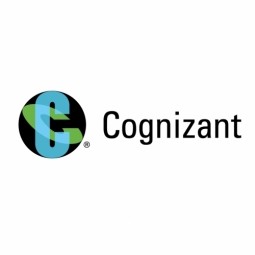
|
Tech Titan Transforms Its Global HR Systems
A multibillion-dollar technology firm, with more than 140,000 employees across 180 countries, was struggling with multiple customized, outdated HR systems. Maintenance costs were high. Processes were cumbersome and riddled with heavy paperwork. And data was inaccessible in real-time.The company needed a modern HR system to standardize and simplify processes, reduce maintenance costs and empower employees with easy access to data.
|
|

|
UX Team Accelerates Product Development for Digital Payments Provider
A global digital payments provider was looking to consolidate its design group in California, aiming to create a central hub for the company’s product, engineering, and design talent. The goal was to accelerate product development by providing strategic and flexible user experience (UX) design services, ensuring consistency and continuity of project resources. The company also aimed to establish last-mile design support to global product design and engineering teams and create governance for efficient coordination across projects. The major challenge was to staff the new hub with 35 UX design consultants and make it operational within 30 days. The client chose Cognizant Digital Experience, one of the largest design services groups in the industry, to take on this challenge.
|
|
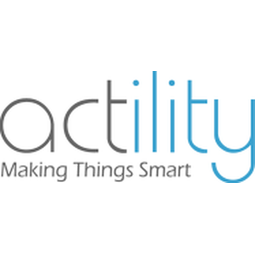
|
Smart City Transformation through IoT: A Comprehensive Case Study
Many cities are grappling with issues such as aging infrastructure, increasing air pollution, traffic congestion, rising energy prices, and scarcity of natural resources. The traditional methods of managing these challenges are proving to be inefficient and unsustainable. For instance, waste management companies have been operating with limited innovation in operational efficiency. Trash containers often fill up too soon, and there is no real-time information on waste bins filling level. Similarly, city parking management systems are under pressure due to high and unstable demand from users. The challenge is to fully exploit all available spaces and connect them with IoT to monitor and optimize the occupancy of parking spaces. Additionally, most cities lack real-time monitoring of street light conditions, leading to energy inefficiency and higher operating costs. Lastly, cities face environmental challenges such as air pollution, noise pollution, water safety issues, inefficient irrigation, and flood risks.
|
|

|
U.S. Venture Leverages Dataiku to Streamline Data Efforts and Save Thousands of Hours
U.S. Venture, a company operating in diverse industries such as automotive aftermarket, energy, and technology, faced significant challenges in managing and analyzing customer data due to its complexity. The company struggled with creating enterprise tools and processes that could eliminate silos and promote collaboration. The Data and Analytics team at U.S. Venture, established in 2018, initially focused on data warehousing and basic reporting. However, they soon realized the need for advanced analytics at scale. The team faced difficulties in maintaining models and disparate data sources, which could quickly become unmanageable without the right people and tools. Additionally, the team's data scientists and analysts were using a varied set of tools and coding mechanisms, leading to a lack of standardization and collaboration. The individual team members built their own components that lived in different places and were created via their own tools, saved on personal computers, with no visibility for other team members about where projects were and how they were created or functioned.
|
|
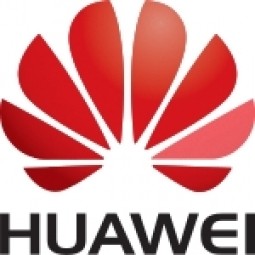
|
3C Product Online Appearance Quality Inspection
For a 3C product supply chain enterprise, the monthly labour cost of manual visual inspection exceeds 2 million, the proportion of quality inspection personnel accounts for 20%~40%, and there are quality problems such as missed inspections. At present, manual quality inspection is faced with the problems of quality, cost, response to special scenarios, and information integration. The details are as follows:Quality: The subjective factor of manual quality inspection has a great influence on the judgment result, and there will be a problem of missed inspection based on visual fatigue; Production status of a 3C product supply chain enterprise.Information integration: There is no effective accumulation and utilization of production data, and subsequent process reengineering and quality analysis cannot be promoted, and the adaptation to automated production processes is weak.Cost: The turnover of personnel is high, resulting in high training and labour costs, and it is difficult to recruit workers.Efficiency: Traditional machine vision uses programmed computing logic for visual inspection, which has poor anti-interference ability for such complex surface inspection, high false detection, and heavy workload for personnel re-judgment.
|
|

|
Error Proofing Inspection after Product Assembly
In the assembly workshop of an automobile OEM, the last process of automobile production still needs to rely on a lot of manpower to assemble the body. For the scene of lamp inspection, due to the mixed production inspection, the inspectors completely rely on experience to inspect the model. In addition, due to the serious light interference on the assembly line, the inspectors also need to avoid the interference of external light sources on the detection of vehicle lights, and the detection cycle is short, which also has high requirements on the inspection speed of the inspectors.At present, traditional manual quality inspection faces the problems of quality, special scene response and information integration:1 Quality: In manual quality inspection, experienced quality inspectors are required to know exactly which parts are equipped with which models based on 20+ types of vehicles. The requirements for human experience are high, and new employees are unfamiliar with models. There will be problems with missed inspections.2 In the case of a strong light source for a long time, it is necessary to take relevant human protection to prevent the eyes from being exposed to the light source for a long time.3 Information integration: at present, it is impossible to match the material of the model and the lamp, and the material deviation cannot be traced.
|
|

|
Stagecoach Achieves Sustainability Goals with GreenRoad's IoT Solution
Stagecoach Group, one of the world's largest public transport groups, was facing a significant challenge in improving the sustainability of its operations. The company, which operates approximately 8,400 buses across the UK and carries around 2.5 million passengers daily, had set a goal to significantly reduce its fleet transport CO2 emissions by 3%. However, achieving this ambitious aim was proving to be difficult. Stagecoach needed a solution that would not only help it meet its emission reduction goals but also reduce fuel consumption, decrease vehicle wear and tear, and enhance passenger comfort and safety. To address these challenges, Stagecoach turned to GreenRoad, a provider of driver behavior and fleet performance management solutions.
|
|
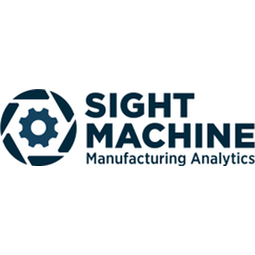
|
Digital Transformation of Essex Furukawa with Sight Machine
Essex Furukawa, the world’s largest manufacturer of magnet wire/winding wire, faced a significant increase in demand due to the rapid shift of global automakers towards electric power. The company needed to maintain its market leadership by increasing throughput and uptime while delivering high-quality products. The challenge was to meet the growing demands without compromising the quality of their products. The magnet wire they produce for electric vehicle motors must meet exacting standards to withstand years of severe stress, including high heat, high electrical current, and fast switching frequencies. Essex Furukawa leadership recognized the need for a digital transformation of their manufacturing plants to collect and analyze production data for predictive maintenance and continuous operational optimization.
|
|
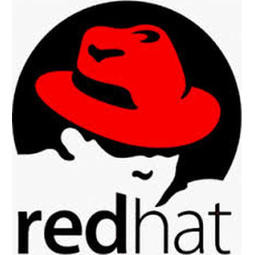
|
Deutsche Bank streamlines development platform, democratizes IT
Streamline platform for efficient developmentDeutsche Bank wanted to shorten development cycles to get products to market faster. But its restrictive infrastructure made integration difficult and application development slow. Managing thousands of servers and databases hindered growth and the adoption of emerging technology. “Many operating systems were being used across multiple datacenters,” said Emma Perkins, PaaS portfolio manager at Deutsche Bank. The bank also wanted to replace its traditional waterfall processes with a DevOps approach. To meet these needs, Deutsche Bank sought to establish a PaaS that would streamline development and management, reduce risk, and scale easily to support more agile work across its business.
|
|
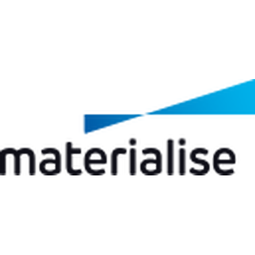
|
Personalized Automation: FITme's Journey to Increase Productivity by 346% with 3D Printing
FITme, a Korean-based company specializing in manufacturing implants for facial reconstruction, faced a significant challenge in scaling up their processes for mass personalization. The conventional process of fitting a ready-made silicone implant onto bone structure with manual carving was time-consuming and lacked precision. Surgeons had no tool to analyze patients' scan data and relied solely on photographs. This led to side effects such as bending and movement of the implant, resulting in patient dissatisfaction. The medical tourism industry in Korea was rapidly rising, and FITme had to meet higher demands and reduce lead time. The process of designing custom nasal implants that conformed to the variable shape of patient nasal profiles was a daunting and repetitive task for design engineers. It took up to three months to adequately train new engineers in designing patient implants, which was also expensive.
|
|

